Research in Philosophy & Religion
Find out more about the research and outreach of the department's faculty and students.
- Home
- Departmental Directory
- Liberal Arts
- Department of Philosophy & Religion
- Research in Philosophy & Religion
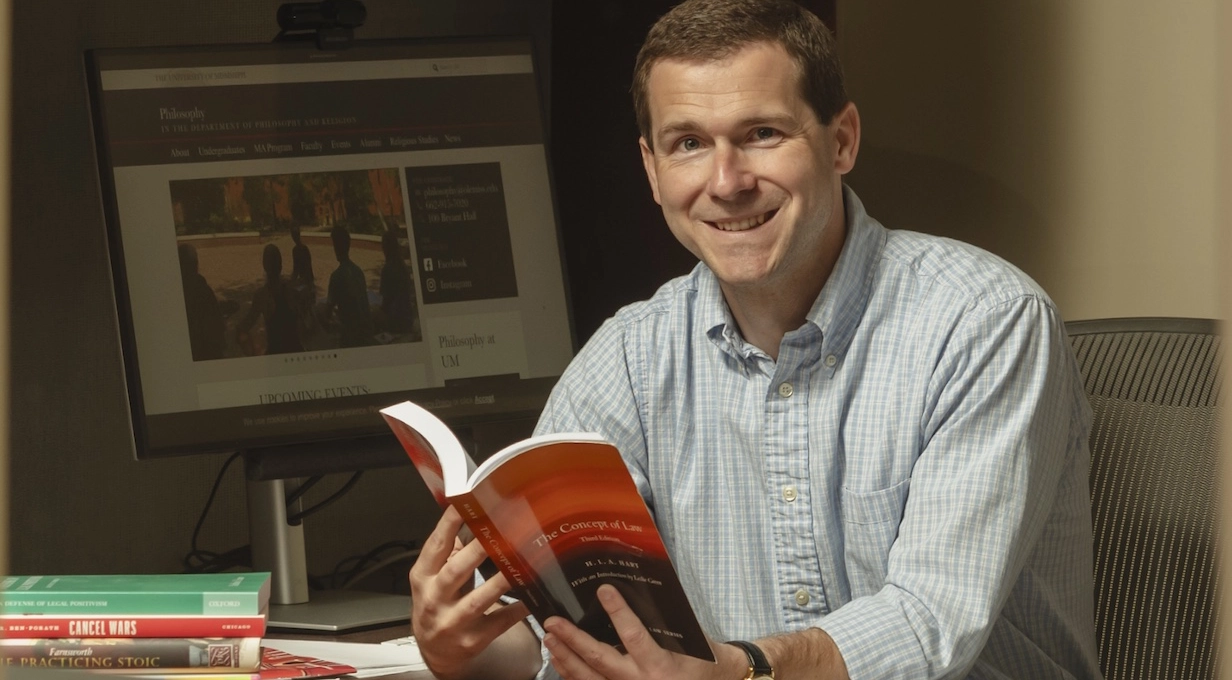
A Top Research University
The University of Mississippi is classified by Carnegie Classification of Institutions of Higher Education as an R1 university, a designation reserved for the top 2.5% of universities in the nation.
Why does R1 matter to students? They will have professors who bring exciting new discoveries into the classroom, give students a chance to work alongside them as they conduct their research, and introduce students to a network of top-tier scholars from around the world.
Our faculty of philosophers and religion scholars are world-class researchers also dedicated to teaching. The department has particular strenghts in the areas of metaphysics & epistemology, ethical & political philosophy, and religious studies.
Our department is small enough that professors know their students personally, offering advice in scheduling classes, deciding upon a career, and seeking complementary educational opportunities such as internships and study abroad.
Metaphysics & Epistemology
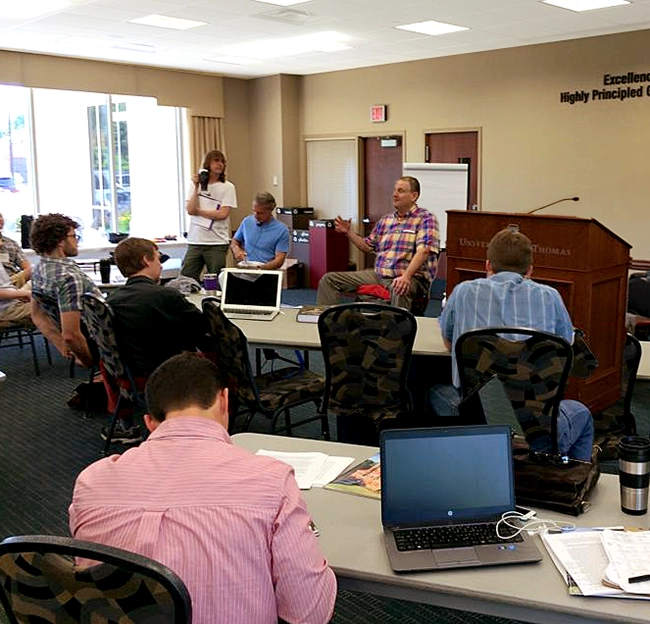
Cosmic Fine-Tuning: God or the Multiverse?
Dr. Neil A. Manson, Professor of Philosophy, researches the philosophical implications of cosmic fine-tuning for life–the fact that the laws and constants of physics need to be precisely what they are for life to be possible anywhere in the universe. Some think fine-tuning points to a Designer, others to a multiverse sufficiently large to make the existence of a life-permitting universe probable. Manson received a John Templeton Foundation grant to develop a comprehensive guide for researchers. Published widely on the topic, he has has been interviewed on numerous podcasts about it.
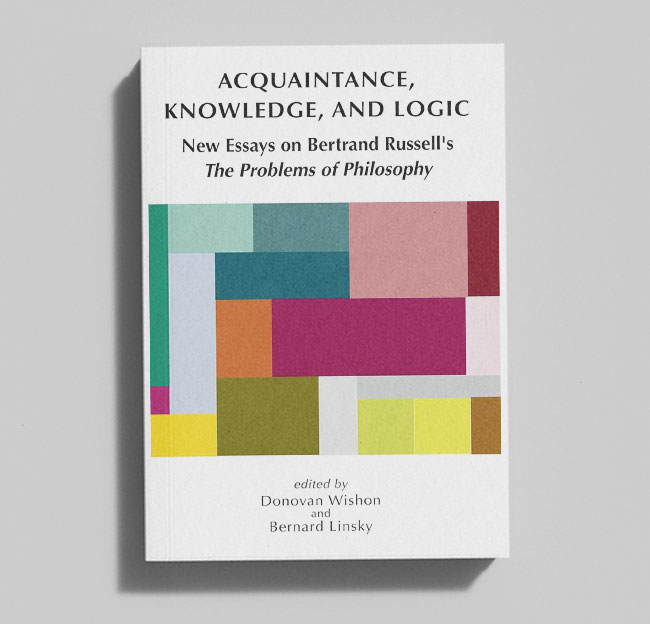
Bertrand Russell on Mind and Matter
Dr. Donovan Wishon, Associate Professor of Philosophy and Affiliated Faculty in Neuroscience, researches philosophy of mind and the history of analytic philosophy. Focused on the eminent 20th century philosopher, logician, and social activist Bertrand Russell's changing views about the relation between mind and matter, Wishon is recognized as a leading expert on Russell’s later writings on “neutral monism." He organized two conferences on Russell, won the Bertrand Russell Society Book Award, and was a Bertrand Russell Archives & Research Centre Research Fellow.
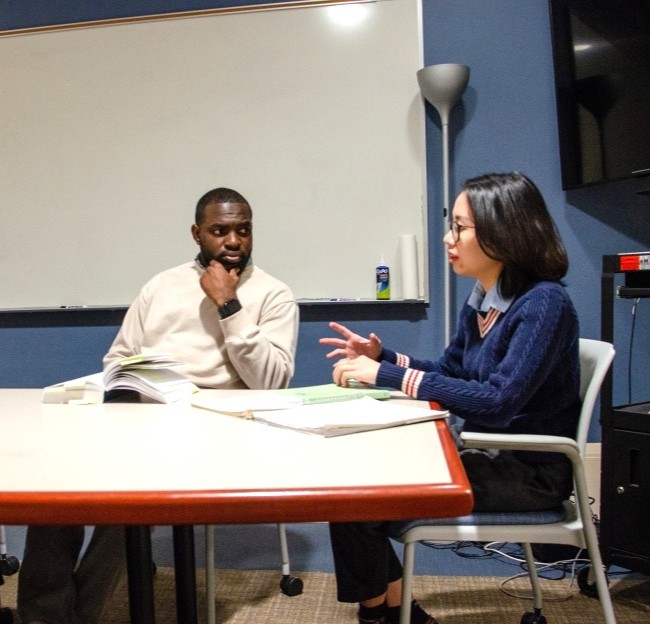
Intersection of Ethics and Epistemology
"My research lies at the intersection of ethics and epistemology, particularly virtue and social epistemology. I am exploring autonomy as an intellectual virtue: its nature, value, and role in epistemic inquiry within an intellectual community. I adopt a responsibilist virtue-theoretic framework to develop an account of autonomy that avoids significant puzzles about extant accounts of intellectual autonomy." Paisley Agyare Boaitey, MA student (left)
Metaphysics & Epistemology
Robert Barnard
- Professor of Philosophy
Neil Manson
- Professor of Philosophy
Bryan Smyth
- Instructional Assistant Professor of Philosophy
Donovan Wishon
- Professor of Philosophy and Graduate Program
Timothy Yenter
- Associate Dean for Capstone and Professor of Philosophy
Katherine Moses
- Instructional Assistant Professor of Philosophy & Religion
Ethical & Political Philosophy

Applied Ethics & Ethical Leadership
Dr. Deborah S. Mower, Professor of Philosophy and Director of the Center for Practical Ethics, researches methods and practices to develop ethical reasoning and leadership skills. Her work in moral education intersects with psychology, education, and leadership studies to highlight the specific virtues and dispositional traits needed for complex ethical reasoning and action. The head of a multi-year educational research project funded by a Wake Forest University's Program for Leadership and Character grant, she also has a Department of Justice/Bureau of Justice Assistance grant to develop ethics education programs for K-12 in Mississippi as part of violence prevention measures. Mower champions ethics education nationally through her publications.
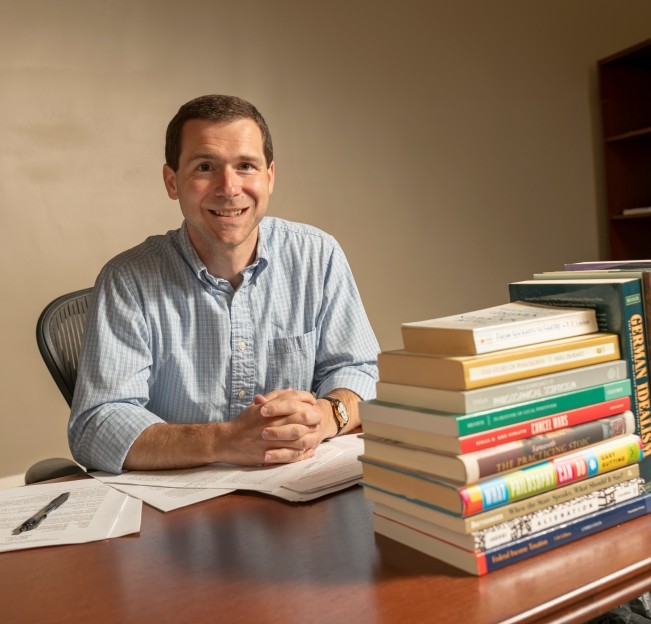
Is Law Irreducibly Moral?
Dr. Aaron Graham, Assistant Professor of Philosophy, takes the nature of law as his primary object of theoretical inquiry. Specifically, he investigates in what sense - if any - law has a necessary relationship to morality. The answer to that question bears directly on other, related questions, such as whether judges are making or finding law in hard cases, and whether we have a moral obligation to obey the law. His Jurisprudence course is open both to Philosophy M.A. and School of Law students. A former practicing attorney, he is academic advisor to pre-law philosophy majors and is the faculty advisor for the Pre-Law Club.
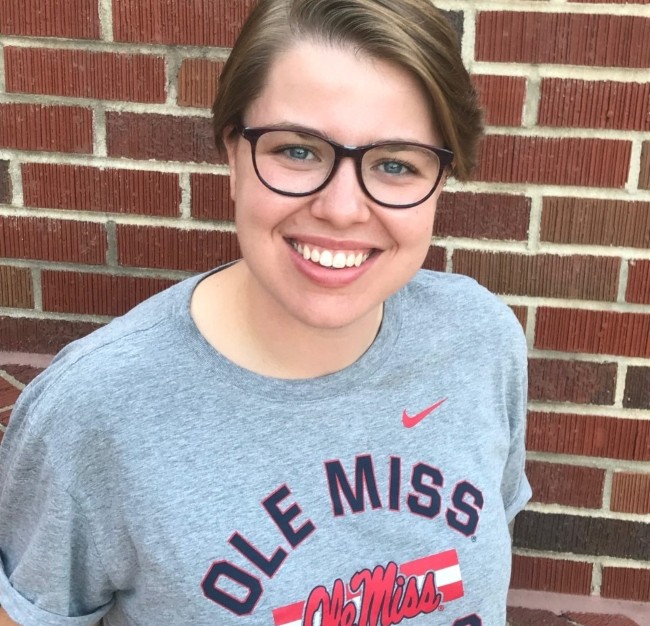
Undergraduate Honors Thesis
Amy Cain (B.A. in Philosophy and Political Science '20) was the recipient of the Governor's Award for Excellence in the Study of Politics and the James and Cecilia Lawhead Award in Philosophy. She completed her honors thesis by combining her interests from both majors. She examined two sources of conflict within the literature on education in liberal political theories: the proper justifications for a state-mandated education and the necessary standard for education in a liberal state.
Ethical & Political Philosophy
Robert English
- Instructional Assistant Professor of Philosophy
Aaron Graham
- Assistant Professor of Philosophy
Fei Lan
- Associate Professor of Religion
Deborah Mower
- Director of the Center for Practical Ethics, Professor of Philosophy, Mr and Mrs Bryant Lectureship in Ethics
Steven Skultety
- Chair and Professor of Philosophy and Director of the Declaration of Independence Center for the Study of American Freedom
Bryan Smyth
- Instructional Assistant Professor of Philosophy
Katherine Moses
- Instructional Assistant Professor of Philosophy & Religion
Religious Studies
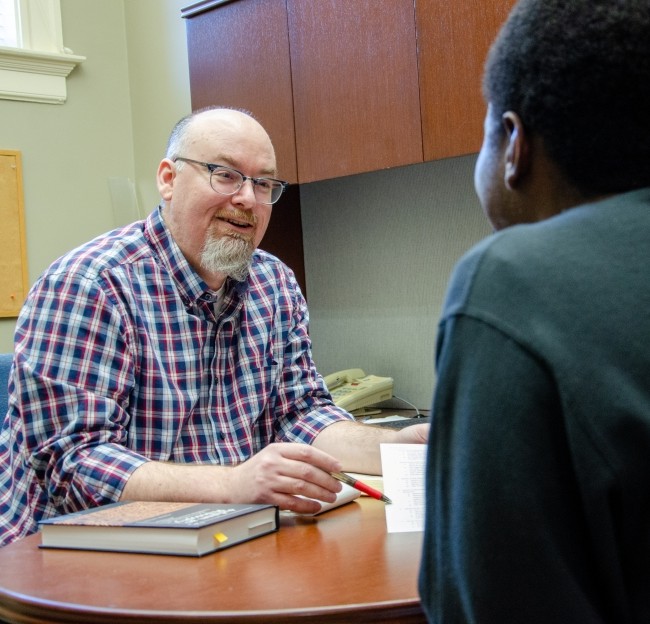
Hebrew Bible/Old Testament
Dr. James M. Bos, Associate Professor of Religion, specializes in the prophetic books in the Hebrew Bible/Old Testament. His first book on the prophet Hosea analyzed how this book, attributed to Hosea in the 8th century BCE, developed in later centuries as Judahite writers grappled with their overwhelming defeat to the Babylonian Empire in 586 BCE. He is currently working on a book examining the characterization of the main participants in the prophetic books (both divine and human characters) from a narratological perspective.
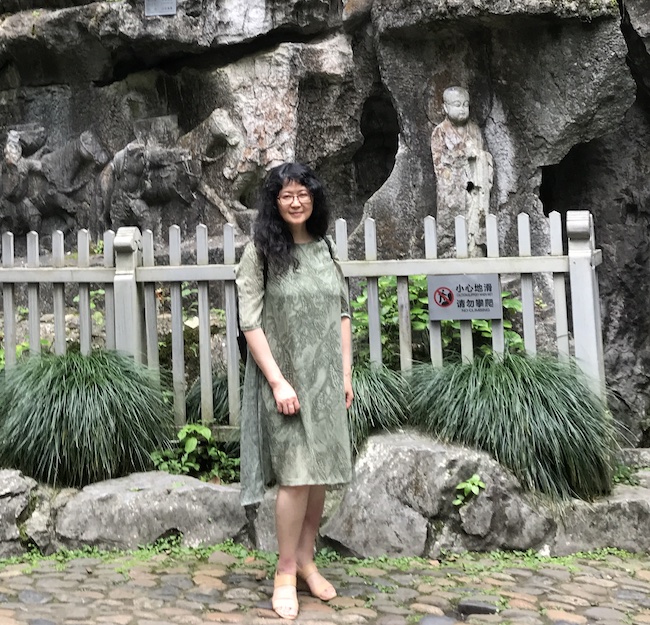
Confucianism, Daoism, & Buddhism
Dr. Fei Lan, Associate Professor of Religious Studies and an affiliated faculty member of the interdisciplinary minor in East Asian Studies, specializes in Chinese philosophy and religions. Her publications focus on Confucian thought and religious ethics. She is currently working on a book examining the ethical thought of Dai Zhen, a leading Confucian thinker of the late imperial China. Other topics of her teaching and research interest include nature and the environment, healing and health in Asian religions.
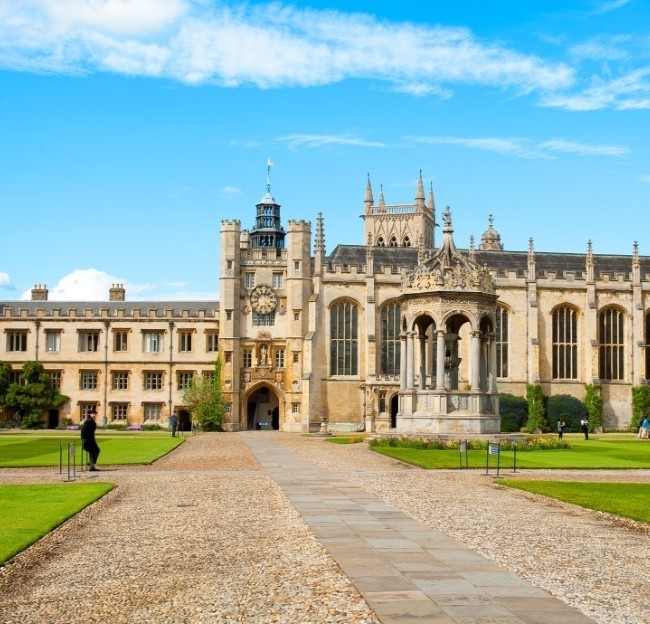
Gates-Cambridge Scholar
Josh Law (B.A. Religious Studies '17) was awarded a Gates-Cambridge Scholarship from the Bill and Melinda Gates Foundation to attend the University of Cambridge to pursue a master's degree in health, medicine, and society.
"Health is such an interdisciplinary experience. There is so much impacting an individual person and what it means for them to be healthy. Looking at that through as many academic lenses as possible through history and philosophy, but also through the social sciences, is going to provide the best opportunity for me to have a well-rounded view of health in the 21st century."
Religious Studies
Drew Billings
- Instructional Associate Professor of Philosophy & Religion
James Bos
- Associate Professor of Religion
Fei Lan
- Associate Professor of Religion
Deborah Mower
- Director of the Center for Practical Ethics, Professor of Philosophy, Mr and Mrs Bryant Lectureship in Ethics
Mary Thurlkill
- Professor of Religion
Dialogue Initiatives
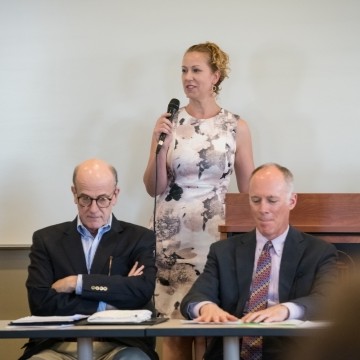
Policy Talks
Policy Talks events bring faculty, alumni, business experts, and community members together to focus on the ethical issues surrounding a timely topic. Participants network and engage in collaborative recommendations, identify "best practices" guidelines, and ethically-informed policy solutions.
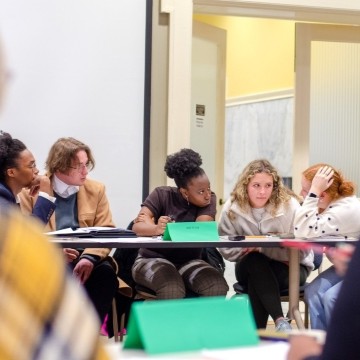
The Great Debate
Ethics Bowl team students address a difficult question and debate the issues for an audience of students, alumni, faculty, staff, and the community. This is a fun event run by students for students to explore ethical issues and to think about potential solutions through collaborative discussion. They unpack this complexity and demonstrate moral analysis.
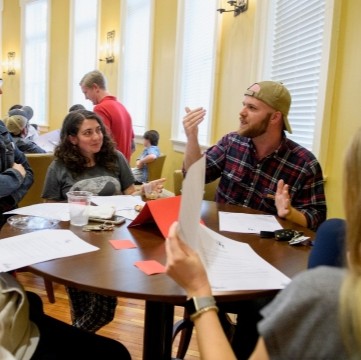
Just Conversations
Just Conversations places participants in small groups of guided discussions about ethical issues. Through the assistance of trained moderators, participants explore important ethical questions and policy needs and begin to understand more about why their classmates, neighbors, friends, and fellow citizens hold the beliefs they do.
